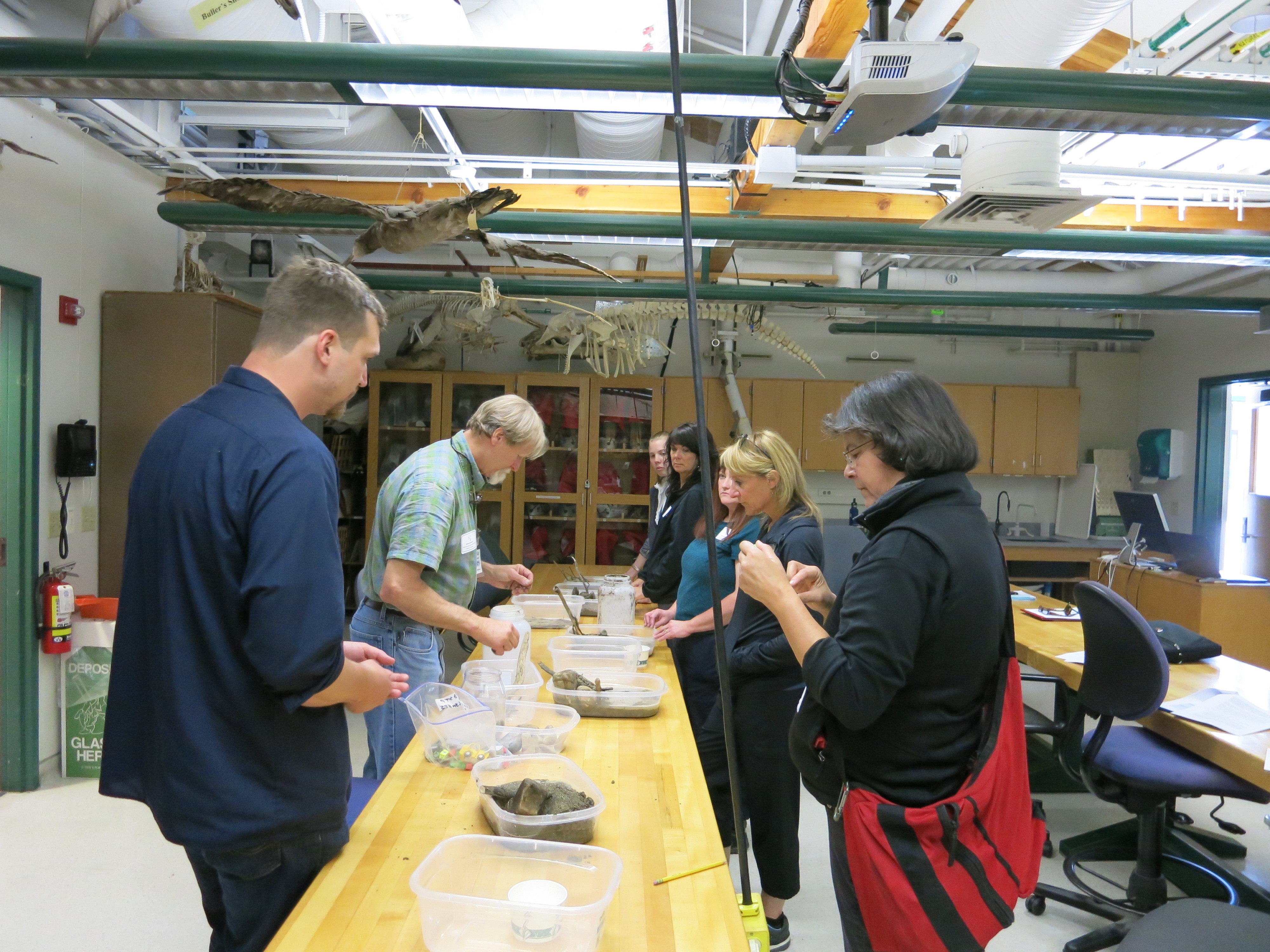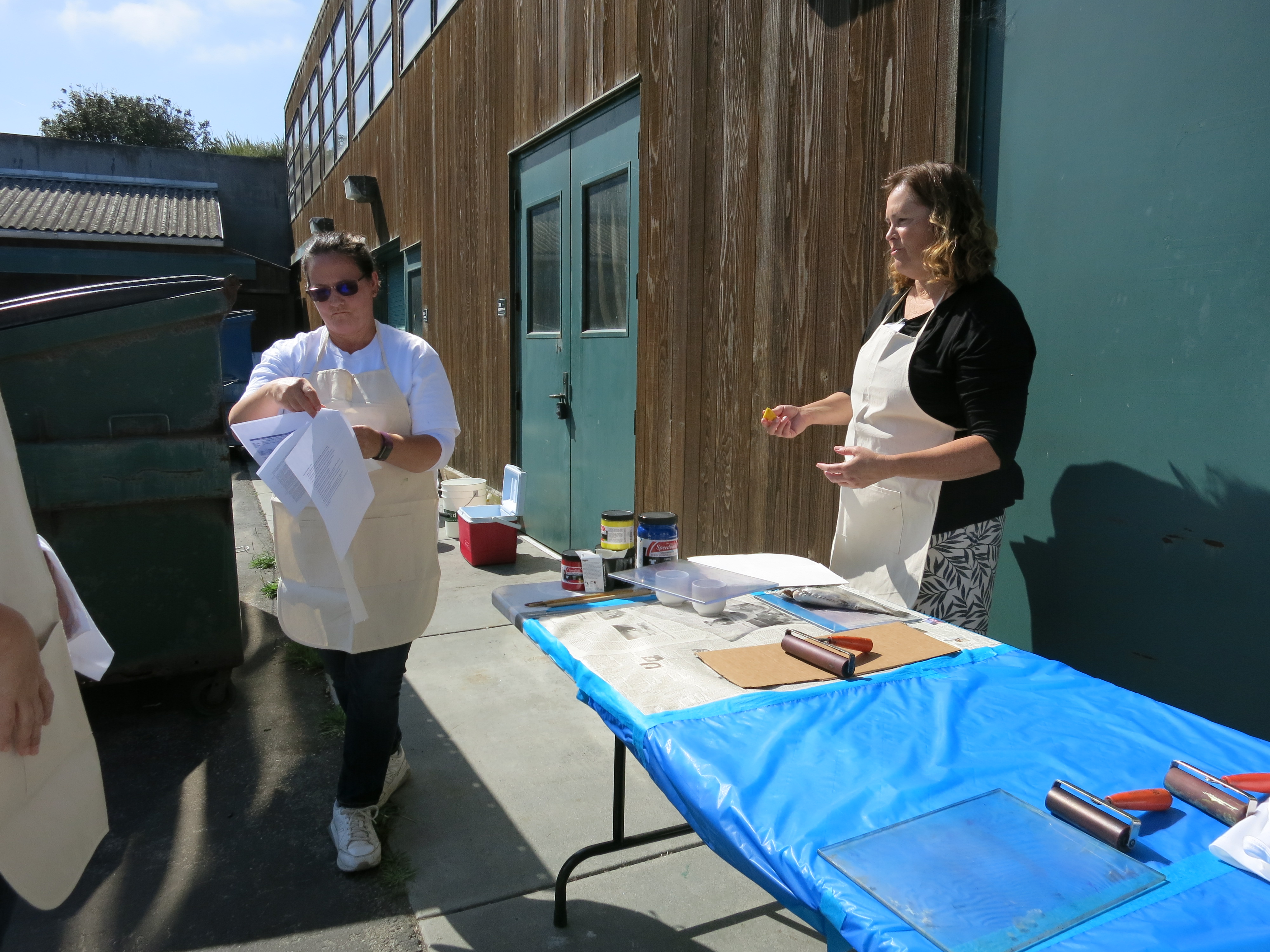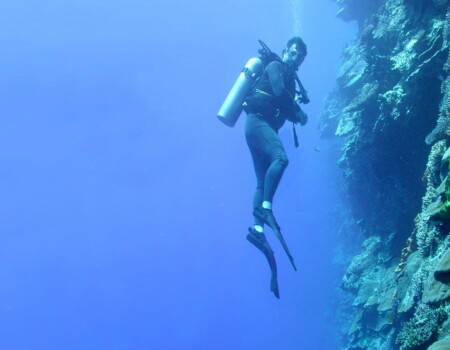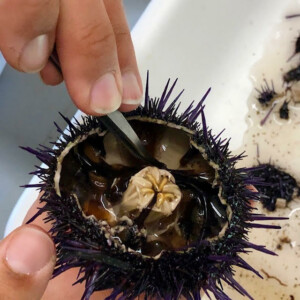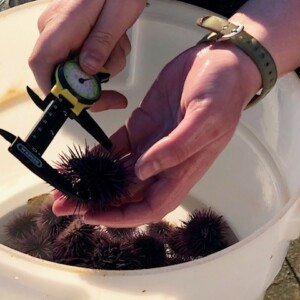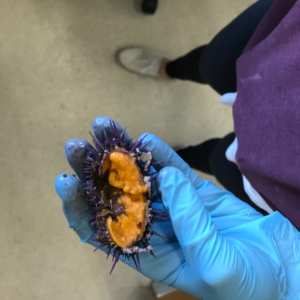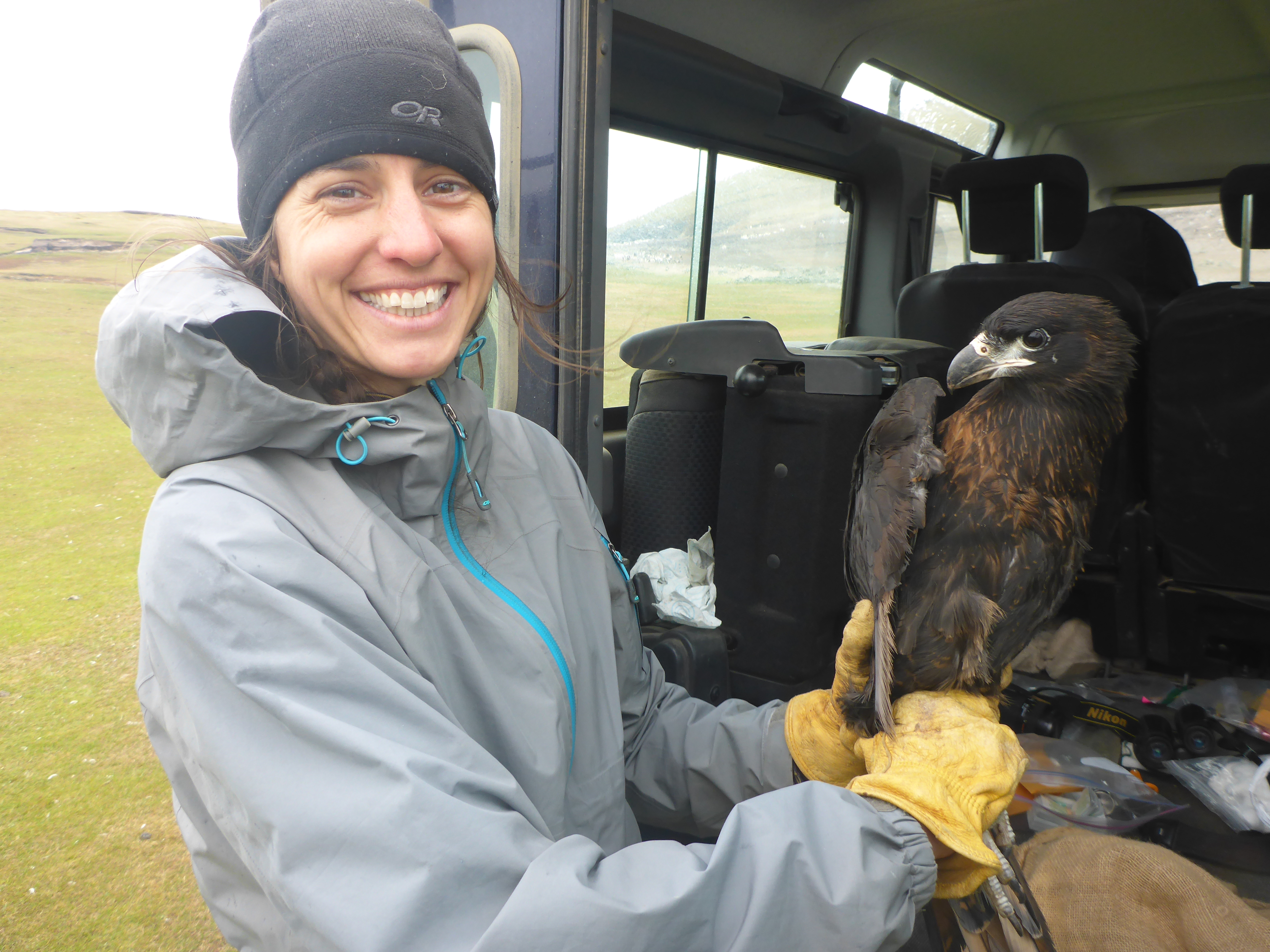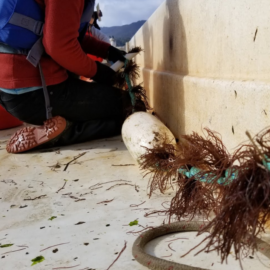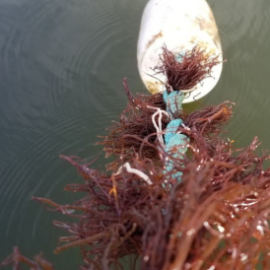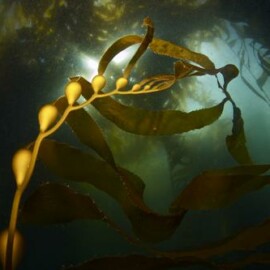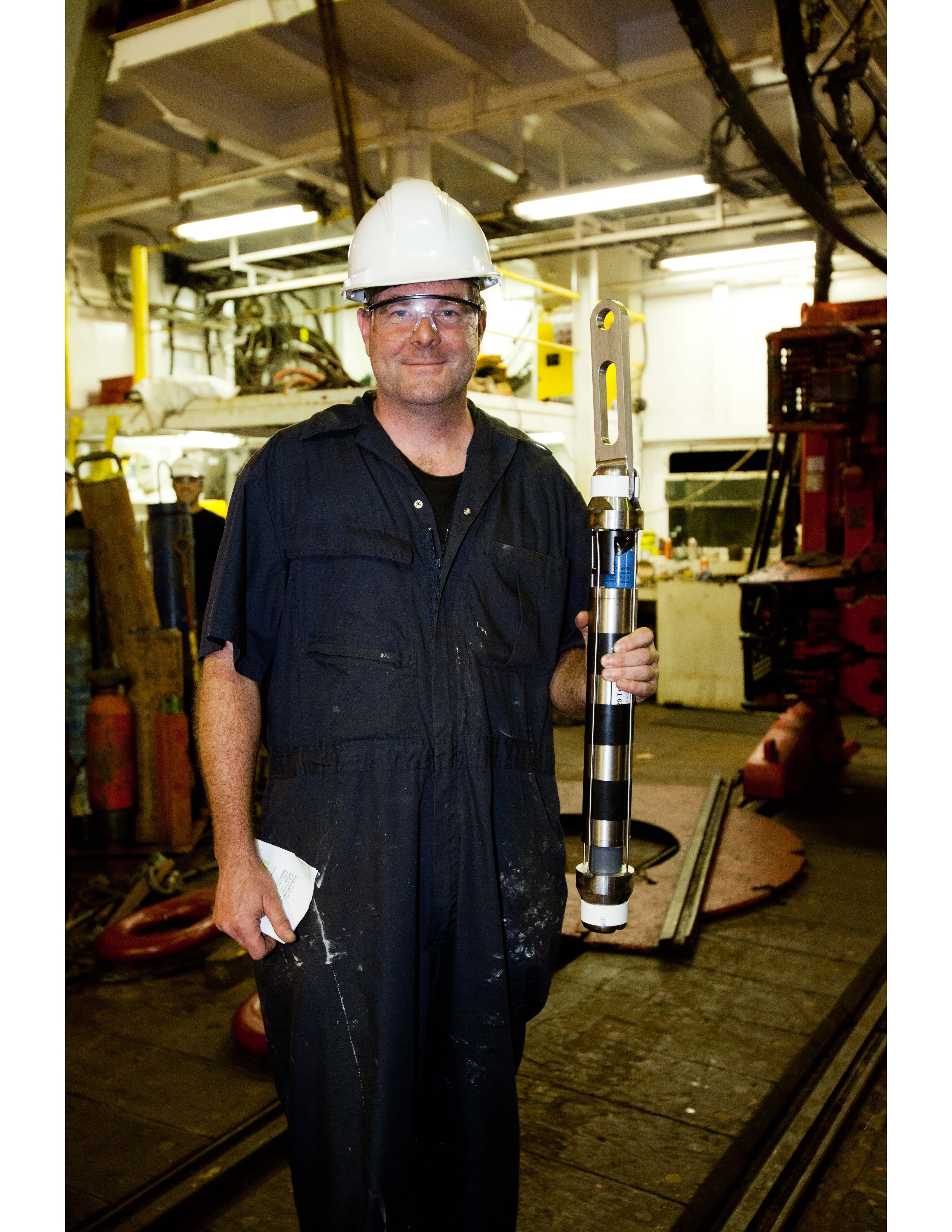
Month: July 2019
MLML Alum Mark Slattery Featured in SJSU Washington Square Magazine
Mark Slattery graduated from the Invertebrate Zoology lab in 1987 and has gone on to do some amazing things. He is now a professor of pharmacognosy and environmental toxicology at the University of Mississippi and studies how the chemical makeup of marine life could be applied for drug discovery. The University of Mississippi even awarded him the 2018 Distinguished Research and Creative Achievement in recognition of his work. SJSU's Washington Square Magazine has featured Mark and his latest accomplishments in an article here.
How urchin ranching can help kelp
The gallery was not found!
Students in the Spring Aquaculture class at Moss Landing Marine Labs worked together to test whether sea urchins removed from barrens could be used for food. The class was led by California Sea Grant Extension Specialist Luke Gardner and the diet-experiment lasted 10 weeks. The class built the culture system from the ground up and got an unforgettable hands-on learning experience.
"This class experiment gave a group of novice aquaculturists a chance to raise marine organisms and demonstrate how aquaculture can benefit nearshore ecosystems," wrote Helaina Lindsey in her blog post on California Sea Grant's website regarding the experiment.
To learn more, you can read Helaina's full article here.
Thesis Defense by Katie Harrington-July 11th
Seasonal time-energy allocation of an island-restricted Falconid, the Striated Caracara, using a low-cost, open-source inertial movement GPS logger
A Thesis Defense by Katie Harrington
Thursday, July 11th, 2019 at 12 pm
MLML Seminar Room
Katie began research on striated caracaras in 2015 and has since took over leadership of a long-term research site begun by Hawk Mountain Sanctuary in 2010. Along with overseeing and implementing the expansion of a banding program and educational outreach to farmers and schoolchildren in the islands, Katie’s research has focused on striated caracaras’ seasonal movements, feeding ecology, and energy use. Katie is currently collaborating with researchers in mainland South America to study the population genetics of striated caracaras within and beyond the Falklands, and to support and encourage research into their little-known populations in Chilean and Argentine Tierra del Fuego.
Thesis Abstract:
According to life history theory, animals should have adaptive strategies to cope with seasonal fluctuations in resource availability. However, the introduction of human settlements to natural landscapes can affect the spatial and temporal patterning of resources and disrupt the naturally occurring resource variation to which an animal is adapted. Human subsidies impact animal populations by affecting their density, population growth rate, and abundance. Research has shown that island species dependent on human subsidies are more prone to population declines and local extirpations. While population level effects are known, little research has been aimed at individual level behavior and energy allocation effects. Here, I investigate the time-energy allocation and activity budgets of striated caracaras (Phalcoboenus australis), a scavenging and predatory Falconid in the Falkland Islands, a highly seasonal and human-subsidized environment. I developed the Tapered Wings Logger, a low-cost, lightweight inertial movement GPS logger, and made the logger design available for researchers and applicable across many systems. I deployed the loggers on caracaras to examine seasonal differences in time-energy allocation and activity budgets. The acceleration data were used to calculate overall dynamic body acceleration (ODBA, gravitational g), a proxy for energy expenditure, and to estimate behavioral state using hidden Markov models. I combined the GPS data with ecological knowledge of the species and study sites to help validate model results. Additionally, I investigated space use with daily distances traveled and home range kernel density estimates. My results suggest that on a daily scale, caracaras overwintering at a farm settlement worked 20% harder than in summer (24-hr ODBA: winter 2848.07 ± 577.26 g; summer 2380.85 ± 435.65 g [x̄ ± SD]). During daytime, hourly ODBA rates were nearly two times higher in winter compared to summer (winter 239.50 ± 51.61 g; summer 127.92 ± 26.01 g). Caracaras exhibited more intense activity in winter, spending twice as long in the high activity state compared to summer (winter 99.0 ± 45.2 min, summer 44.1 ± 26.1 min). In addition, during winter, caracaras traveled greater cumulative daily distances (winter 23.75 ± 7.50 km, summer 10.94 ± 3.29 km) and daily ranges were 13 times larger (95% KDE: winter 8.34 ± 11.04 km2, summer 0.64 ± 0.49 km2). This study emphasizes that even with human subsidies to cope with seasonal food availability, caracaras work harder in winter than in summer to obtain enough energy to meet daily requirements. Many island-restricted species will likely face increased variation in resource availability in response to environmental change and human population expansion. I suggest conservation managers consider these results for how to target their efforts to maximize the benefit during a critical life stage of a near threatened species.
Dr. Luke Gardner gives insight on how seaweed aquaculture can change our oceans
"Native seaweed has the potential to be cultivated in California coastal waters and used to alleviate the effects of local ocean acidification, according to a new study funded by California Sea Grant. Besides providing a local and sustainable source of food, researchers and aquaculture producers are exploring how seaweed production may benefit its surrounding environment."
A recent article posted on California Sea Grant's blog details exciting research linking local seaweed aquaculture with the reduction of ocean acidification and pollution. MLML's resident aquaculture specialist, Luke Gardner, was quoted in the article describing how this new area of research is important for ecosystem health.
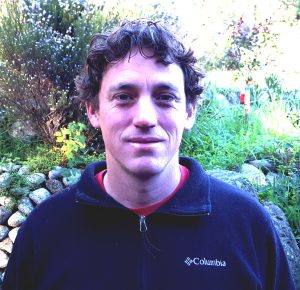
“A growing body of scientific research indicates seaweed aquaculture can provide ecosystem services that contribute to the reduction of local ocean acidification and assist with pollution remediation,” said California Sea Grant Aquaculture Specialist and Scripps Institution of Oceanography/Moss Landing Marine Laboratories researcher Luke Gardner."
To learn more about this research, read the full article here.
Monterey Bay Salmon And Trout Recovery Project at MLML
Moss Landing Marine Labs proudly hosted the Monterey Bay Salmon And Trout Recovery Project’s Salmon and Trout Education Program last weekend. STEP curriculum teaches K-12 students about trout, salmon and the importance of watershed conservation. Teachers in the area are trained in science curriculum modules which drive home the critical importance of healthy aquatic ecosystems, and help connect local students to natural resources right in their backyard.
Read more about the program here
